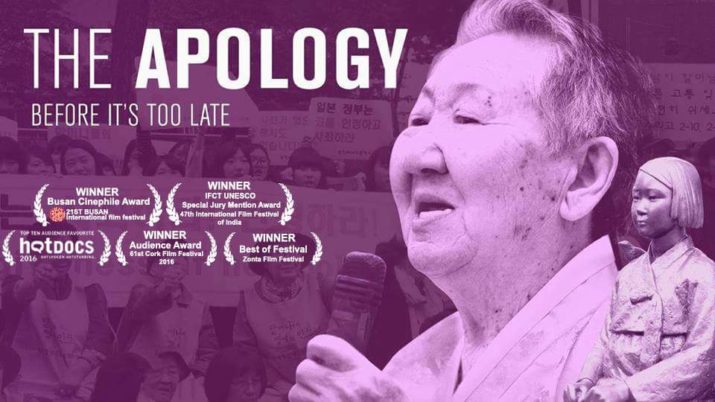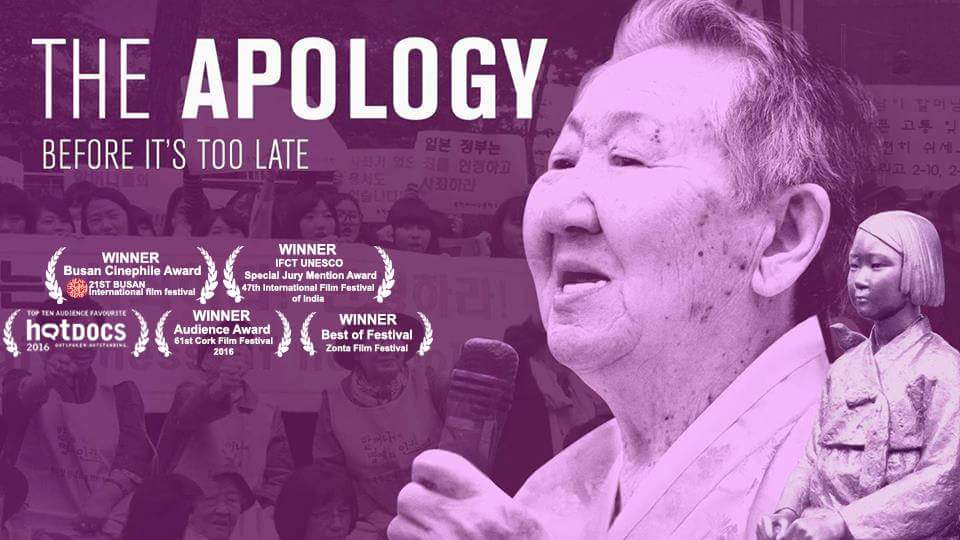

World War II, the most brutal and devastating conflict of the twentieth century, is typically associated with Europe as the bloody arena of countless battles, with Hitler’s Germany and Mussolini’s Italy, with ambitious and power-thirsty warriors driven by insatiable ambitions, by stories of victimhood and, eventually, the grand victory of countless brave men, whose sacrifice and patriotism are glorified in contemporary history books and world cinematography. Grand master narratives of contemporary history rarely correlate war with womanhood, especially if the latter has some dark, shameful, and controversial nature, like the infamous stories of comfort women.
The phenomenon of comfort women (women and girls forced into sexual slavery by the Imperial Japanese Army during WWII) constitutes one of the saddest, most controversial, and silenced pages of world history. Between 1932 and 1945, comfort stations existed in Japan, Korea, China, the Philippines, Indonesia, Singapore, Burma, and various islands in the Pacific. The soldiers called those women pi, a Chinese term that stood for vaginas. It is estimated that after 200,000 comfort women victims were dehumanized and brutally abused, post-war put them in lifelong poverty and social isolation (Izumi, 2011; Soh, 2000). Among efforts to raise awareness about the historical atrocity, the film The Apology (2016) by Tiffany Hsiung, an international award-winning filmmaker and social activist with a global mindset, offers a poignant blueprint of comfort women victims, inviting their voices to be a part of history, and to become active storytellers as historians in their own right.
The Apology reveals untold stories of three victims. Following the footsteps of Grandma Gil from South Korea, Grandma Cao from China, and Grandma Adela from the Philippines, the film juxtaposes their post-war lives after experiencing sexual imprisonment. Referring to these survivors as “grandmothers,” the documentary associates them with age and wisdom, but also family and community, inviting them to be the master storytellers. The comfort women survivors are the only first-hand witnesses of tragic history. Their remembering is re-remembering. They come from different geo-political locations, but their standpoints of being subjects to the oppressive practices of colonialism, sexism, and classism are similar. Glimpsing into their lives allows us to witness how they managed to live with a trauma they never fully liberated or healed from.
Grandma Gil is one of the best-known survivors in South Korea. She has been attending weekly demonstrations in front of the Japanese embassy in Seoul for years. Despite her declining health, she remains a key spokesperson, seeking the official apology from Japan. Grandma Gil, who suffered a sexually transmitted disease at a comfort station, underwent four operations on her stomach, and as a result, was sterilized and affected for life, speaks on university campuses in Korea and Japan. Gil’s pinnacle appearance ends with her trip to the UN Human Rights Council in Geneva to deliver a petition signed by 1.5 million people on behalf of survivors across Asia. Grandma Cao is an elderly survivor living alone in a remote village in rural China. After decades of silence, Grandma Cao shares her story with a historian about being kidnapped and gang-raped by Japanese soldiers. The historian ignites a protest movement after yet another survivor passes away, and eventually initiates and congregates the public to sign the petition, positioning himself as the representative from China. In the Philippines, other supportive comfort women surround Grandma Adela. Kidnapped, hit unconscious, and gang-raped on a regular basis while imprisoned at the age of fourteen, Grandma Adela feels guilty for not having told the truth to her husband while he was still alive. After confessing to her son, she agrees to attend a rally in Seoul but passes away shortly before.
Part of the Japanese public still degrades them, shaming survivors: “f…off, sluts,” “shame on you, prostitutes.” However, the activism of the survivors and their pursuit of legitimacy is captured in the documentary. What Grandma Gil says is particularly telling:
I understand that my visit is not appreciated. […] I do not know what you think about people like us, who have been abused like us. We were born human but have not been able to live like normal humans. I will keep talking until the day I die. I am sincerely asking the Japanese Government if they can speak the truth. Once we resolve the comfort women issue, the war can finally end.
Regardless of resistance from Japan, the transnational communities respect and admire the survivors. The shots from Tokyo and Seoul show countless supporters, validating comfort women’s experiences. Speaking in universities, at rallies, and at international organizations, the victims are slowly rectifying the distorted history.
Research by French West Indian philosopher and revolutionary Frantz Fanon, (2008) on the psychology of racism and the legacy of colonialism, together with examination of colonial elitism by critical cultural and feminist scholar Gayatri Chakravorty Spivak (1988) is central for understanding the understudied issues of muting and framing comfort women. Spivak’s research adds a salient dimension to the understanding of the matter—can the subaltern speak? What if those subaltern are diminished to sex objects? For the famous French philosopher, social theorist, and literary critic Michel Foucault (1990) and his celebrated American counterpart Patricia Hill Collins (2000), sexuality represents the site of identity, where all other oppressions collide together, like in the case of comfort women. Yet, can vaginas speak? The Apology suggests that they can, and should.
In her thought-provoking book, Reel to real, a critical cultural scholar and social activist bell hooks (2016) reminds us that cinema texts assume an epistemological and a pedagogical role, suggesting a particular understanding of certain communities. The Apology follows suit. In line with hooks, speaking from her own positionality of marginality and intersectionality, feminist, race, and queer studies theorist Sara Ahmed (2014) suggests that in addition to knowing marginalized and muted groups, experiencing strong emotions about them is political. The affect the documentary produces is of radical empathy and encouragement to remember comfort women. The Apology provides a worthwhile perspective for gender and feminists studies; critical race theorists, and critical cultural and identity scholars; as well as historians, anthropologists, and ethnographers.
Julia Khrebtan-Hörhager is an Associate Professor of Communication at Colorado State University. Her research focuses on intercultural and international communication, European studies, conflict, international cinematography, and critical media studies. Feminist perspectives on communication and memory studies are further areas of her scholarship.
Minkyung Kim is a doctoral student in School of Communication and Information at Rutgers University. Her research focus is on social and cultural integration and resilience of forced migration groups and the impact of ethnic media and communication technologies in community resilience.
The Apology (2016)
By Tiffany Hsiung
Icarus Films & National Film Board of Canada
References
Ahmed, S. (2014). Cultural politics of emotion. Edinburgh: Edinburgh University Press.
Collins, P. H. (2000). Black feminist thought. Knowledge, consciousness, and the politics of empowerment. New York & London: Routledge Classics.
Fanon, F. (2008). Black skin, white masks. London, UK: Pluto Press.
Foucault, M. (1990). The history of sexuality: An introduction.New York, NY: Vintage Books.
hooks, bell. (1996). Reel to real: Race, sex, and class at the movies. New York, NY: Routledge.
Hsiung, T. (2016). The Apology [Documentary].
Izumi, M. (2011). “Asian-Japanese: State apology, national ethos, and the ‘comfort women’ reparations debate in Japan.” Communication Studies, 62 (5), 473–490.
Soh, C. S. (2000). From imperial gifts to sex slaves: Theorizing symbolic representations of the “comfort women.” Social Science Japan Journal, 3 (1), 59–76.
Spivak, G. (1988). Can the subaltern speak? Reflections on the history of an idea (R. Morris, Ed.). New York, NY: Columbia University Press.
Published on July 31, 2019.




